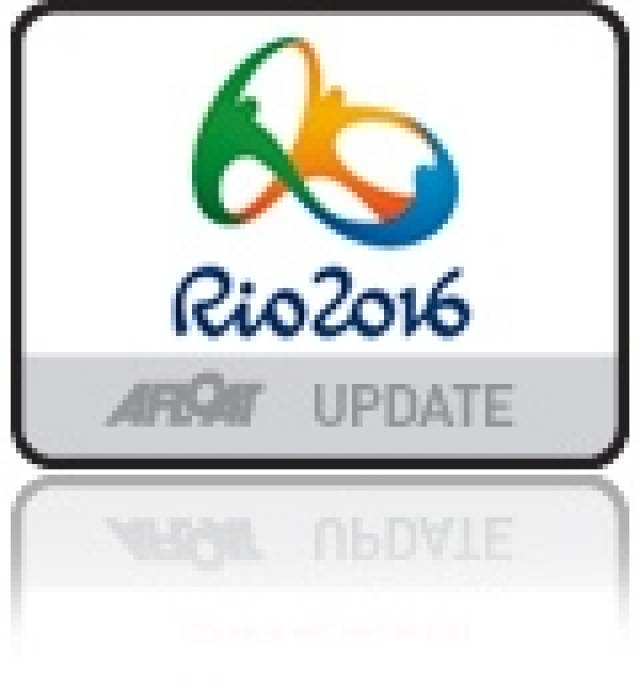#laser– Of the 324 sailors from 43 different countries who are primed and ready to start the Laser European and World Championships on Sunday, very few took the opportunity to participate in today's official practice race on Dublin Bay.
Final boat preparations in the boat parks of Dun Laoghaire's National Yacht Club and the Royal St George Yacht Club and preserving energies proved to be the main priorities as the sailors count down to the first start guns for the three different championships which will run on two race areas.
Three European titles are on offer in two Olympic singlehanded classes, for Men in the Laser Standard, and for women in the Laser Radial. Males will also compete for the Men's World and the Men's European titles in the Laser Radial class. Racing starts Sunday and finishes Friday at Ireland's only major Olympic classes championships in the lead up to the 2016 Olympic Games in Rio. Many overseas in the Men's Olympic singlehanded fleet see this as an important build up to the Laser World Championships which are taking place in Oman in November.
The event is set to be officially opened this evening by An Cathaoirleach Cllr. Carrie Smyth, Dun Laoghaire Rathdown County Council and by An Tanaiste Eamon Gilmore at Dun Laoghaire Town Hall. This opening ceremony is to be preceded by a parade led by Irish Army No 1 Band with local junior sailors carrying the flags of all 43 nations participating in the championship.
Commenting on the importance of the globally watched event Margaret Kneafsey, Event Chairman stated "We are delighted to welcome sailors from over 43 countries to the Laser European and World Championships. Many of the sailors visited Dun Laoghaire earlier this year to practice at the venue and some of the teams arrived earlier in August to train. In addition these 320 or so sailors have also brought their coaches, their families, friends and supporters to Ireland which will have a great economic impact on Dun Laoghaire town".
For Ireland's Annalise Murphy the Laser Radial Women's European Championship represents a great opportunity to win a major title on her own home waters, racing from her home club. Murphy finished seventh at the Laser Europeans last year before taking fourth at the Olympics. She has already won two major regattas this season before welcoming her overseas rivals and friends to her native Dublin Bay.
The 23 year old from Rathfarnham, eight miles from the yacht club, started her sailing at the National Yacht Club as a ten year old in the Junior section of the club, confirms she is ready to race and pre regatta nerves are not an issue for her "I have been training pretty hard this summer but I have not had any big events since June, so I am just really looking forwards to getting back out and racing against everyone, nearly everyone is here and so it is going to be tough competition".
"I am not really nervous at all. I am just looking forward to it. I have had such good training in the last five or six weeks. I was in Rio for three weeks. It was good to be there and see what the venue is like and to see what the sailing conditions are really like. It was interesting and that will really help me out in the next few years. It puts it all into perspective and then I was down in Cork to race at the Nationals".
"I feel like I am sailing well and I just need to put it together in the races. It is exciting to have all overseas sailors I know and race against from all around the world and are friends with all in my home club. That is a pretty nice feeling. Hopefully you want them to be impressed. So hopefully we will get good weather all week and there won't be too much or no wind".
Staying at her family home is a welcome, if unusual bonus, but she does not felt there will be any inherent local knowledge advantage on the water "I am staying at home which is nice to be going back to my own bed at night. I have the same routine as at major events except it is my own comfy bed".
"My form is pretty good. I have sailed well at the last three regattas I did, at Lake Garda, Holland and in Weymouth and so hopefully with the training I have done with my boat speed now I can fit that in with how I was racing a few months ago then I can do well and put together a good series. My boat speed is good, maybe not so much in windy weather but definitely in lighter weather. It is a lot better".
Winds on the opening day are forecast to be light to moderate from the south-west "I don't have a preference what the wind conditions are at all. I'd like a good mix of conditions, I'd like a good bit of light weather because that is mainly what I have been training in these last weeks. I'd like to say there is a local advantage but I really don't think there is. Probably if anything it actually confuses you more. You think you know something but maybe it is not really right".































































